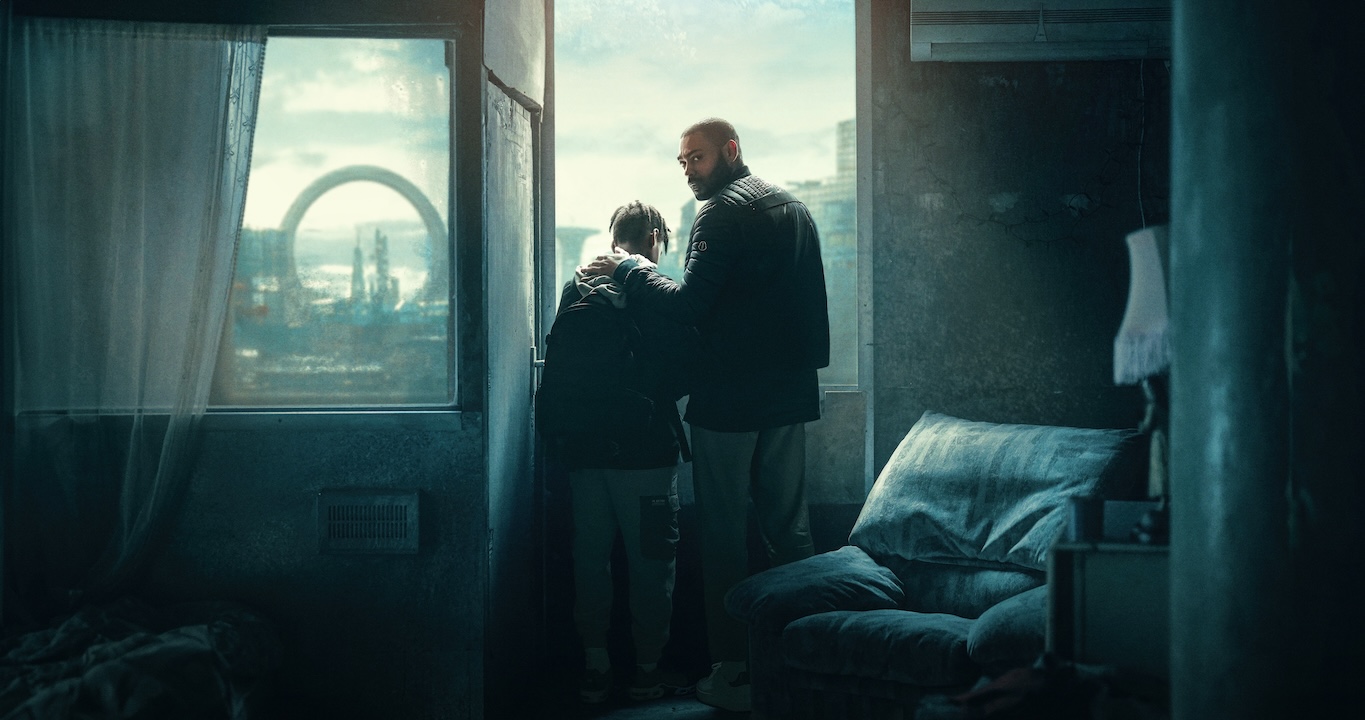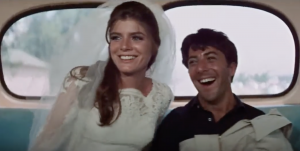
This article contains spoilers for Daniel Kaluuya’s The Kitchen.
Who’s that knocking at the door?
That’s the question left with viewers when credits roll on the Netflix movie The Kitchen, directed by Kibwe Tavares and actor Daniel Kaluuya. Working with his co-writers Rob Hayes and Joe Murtagh, Kaluuya creates a bleak future for England in which rampant inequality and increased privatization of property has left many homeless. Despite its sci-fi setting, The Kitchen doesn’t concern itself with the usual tropes of the genre, focusing instead on the dramatic tension between loner Izi (Kane Robinson) and an orphan boy called Benji (Jedaiah Bannerman).
At least until the end, that is. The film builds to a thrilling climax, one that might leave some viewers wondering what happened and how it relates to the themes of The Kitchen.
How Does The Kitchen End?
Midway through the film, Izi considers giving up his long-waited-for single-accommodation flat for one that could house both him and Benji. However, his selfishness gets the best of him and he leaves the boy in the titular neighborhood. As Izi sits in his single room, police raid the Kitchen, violently attacking the residents in order to force them out and ready the area for whatever plans its private owners have in mind.
The next day, a group of mourners from the Kitchen attend the service for Lord Kitchener (Ian Wright), the community’s DJ and spiritual leader, at Life After Life, the mysterious funeral home where Izi works. The sound of the mourners singing the hymn “How Great Thou Art” and the welcome they give Izi moves him to change his mind and let Benji live with him.
But at the same time, Benji joins a group of displaced Kitchen residents in a counter-strike against the upper class living and shopping district Burlington Arcade, on whose behalf the police works. Intercut between images of mourners singing and holding one another, we see youth Staples (Hope Ikpoku Jr.) and his comrades destroy shop windows and fancier flats while Benji looks on in fear.
Benji runs back home where Izi finds him and apologizes, bringing him home to live in his single-occupancy flat. As the two stand together and look at the cheery images on the screen that doubles for a window at their flat, a pounding in the background grows louder. In the final shot, we hear people burst through the door as Izi turns around to face them.
Who Came Through the Door?
The simplest reading, at least thematically speaking, would suggest that the police came through the door. Although Izi earned access to the flat the “right” way—that is, scrounging enough money to pay four months’ rent upfront and going through the complicated application process and waiting list—he only reserved space for one. Furthermore, Benji may have been wearing a mask during the retaliatory attacks on Burlington Arcade and he may have run away without doing anything, but neither fact makes him safe.
Thus the sound heard at the end of the film may very well be the police coming to arrest one or both of them, dashing Izi and Benji’s upward mobility dreams just as they began.
However, the more thematically rich answer suggests that it’s Staples and others from the Kitchen who have busted through the door. As demonstrated in the very first scene, in which he hogs the water for a long and luxurious shower while a crowd gathers outside, Izi cares only for himself. While he did show some kindness to Benji, the boy may very well be his son, leaving his acts of generosity even below the bare minimum.
In short, Izi is a class traitor, someone willing to exploit members of his community in hopes of joining those who oppress him. So when justice from the unhoused comes in the form of retaliatory attacks on the upper classes, they will come for him. The pounding on the bathroom door that opened the film, in which a crowd gathered hoping to share in what Izi hoarded for himself, may also be the pounding at the end. And if Izi’s face is any indication, this time they’ll give him more than dirty looks.
What Does the Ending of the Kitchen Mean?
“They can’t stop we,” declares Lord Kitchener early in The Kitchen, after the first police raid depicted in the film. “They can only stop we if we see “we” as “I.”
Throughout the movie, Izi has refused to see we as anything other than I. By doing so, he’s weakened the community around him and strengthened those who oppress him. By playing along with the waiting lists, he makes them normal. In his job at Life After Life, he lies to people in order to make a sale, playing with their emotions and exploiting their grief in pursuit of commission money.
And yet, what does he get for his trouble? Cinematographer Wyatt Garfield shoots Izi’s upscale flat from the same angles as that of his space in the Kitchen, revealing that his new home has no more luxury than that of his old home. Worse, he must listen to digital simulacrum of human voices instead of the grooves of Lord Kitchener, because he’s separated himself from neighbors with thick walls. When he looks out his window, he sees neither sun nor clouds, but a screen, trying to replicate whatever kind of empty landscape he wants and failing.
By refusing to see we as we, Izi has harmed those who would be his friends and comrades, and almost completely abandoned his son, be it in biology or in social arrangement. In reward, he received a shinier, but more false, home. In recompense, he receives a visit from the people he harmed along the way, people who would have gladly welcomed him, had he only seen himself as one of them.
With its final scene, The Kitchen proves what Izi refused to accept. He was always with other people. He just chose to fight against them, and now they’re fighting back.
The post The Kitchen Ending Explained: What Daniel Kaluuya Is Saying About Class appeared first on Den of Geek.











